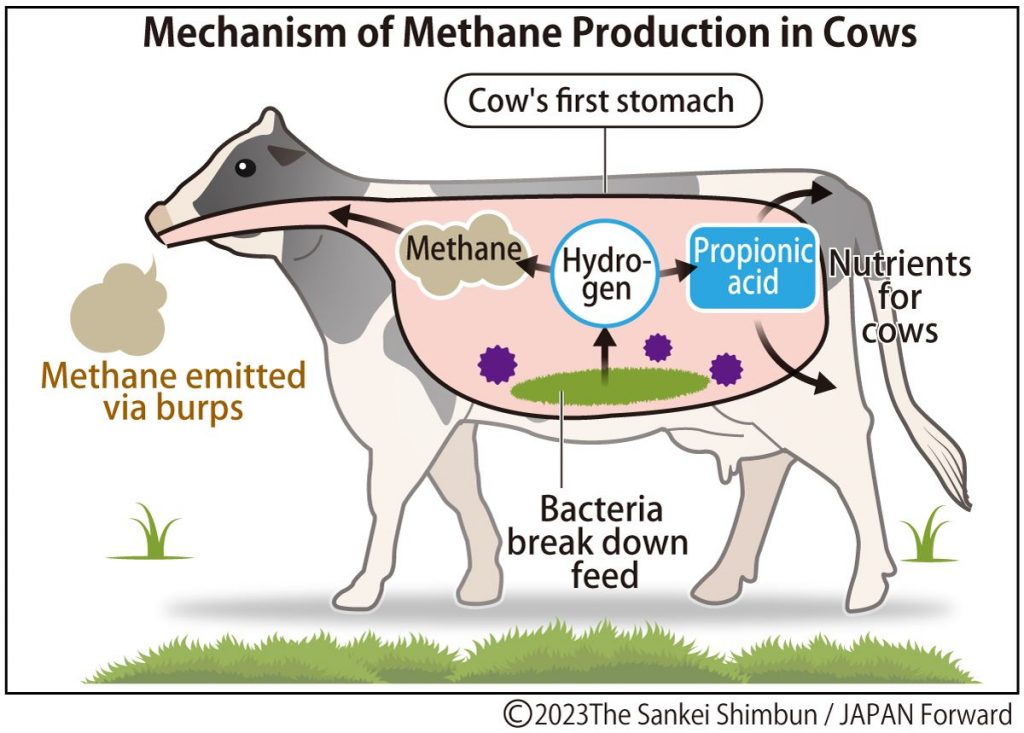
Methane from cows burps is one cause of global warming (Photo courtesy of NARO).
Read the full story on Japan 2 Earth - Do Newly Discovered Bacteria Hold the Key to Curbing Methane Emissions?
Methane emissions from cow burps are one cause of global warming. As countermeasures have become a worldwide issue, Japan is advancing its own research as a national project, and its focus is bacteria.
The plan is to reduce methane emissions by feeding cows a newly discovered type of bacteria. The bacteria are expected to work in the same way bacteria from yogurt balance bacteria in human intestines. Details of the government's strategy follow.
Burps Total 5% of Global GHGs
Cows obtain nutrients by fermenting grass or grains in their stomachs. Methane is produced during this process. It is released in burps roughly once every one to two minutes as the stomach moves.
According to the National Agriculture and Food Research Organization (NARO), beef cattle emit approximately 250 liters of methane per day on average, while dairy cows can emit as much as 500 to 600 liters per day per animal.
Methane, a greenhouse gas, is a substance formed by carbon and hydrogen. Its greenhouse effect is tens times greater than CO2, and its impact on global warming is second only to CO2. It is generated from rice paddy farming, livestock farming, and fossil fuels. Methane's concentration in the atmosphere has continued to rise.
Among these various sources, methane from the burps of ruminant livestock such as cattle, goats, and sheep accounts for a whopping 5% of total greenhouse gas emissions worldwide (converted to CO2 equivalent).

As the world’s population increases and the demand for meat rises, reducing methane emissions from livestock burps has become a major international challenge.
As a side note, methane is not present in human burps due to the highly acidic environment of the stomach, which generally prevents the growth of bacteria.
Continue reading the full story on Japan 2 Earth.
And find more great articles on the environment and the challenges of achieving the SDGs on our new website Japan 2 Earth (J2E), sparking a transition to the future.
RELATED:
- Could a New Type of Feed Reduce Methane in Cow Burps?
- Biogas from Food Waste at the Osaka Expo Earmarked for Use in LNG Substitute
(Read the article in Japanese.)
Author: Yosuke Osanai








